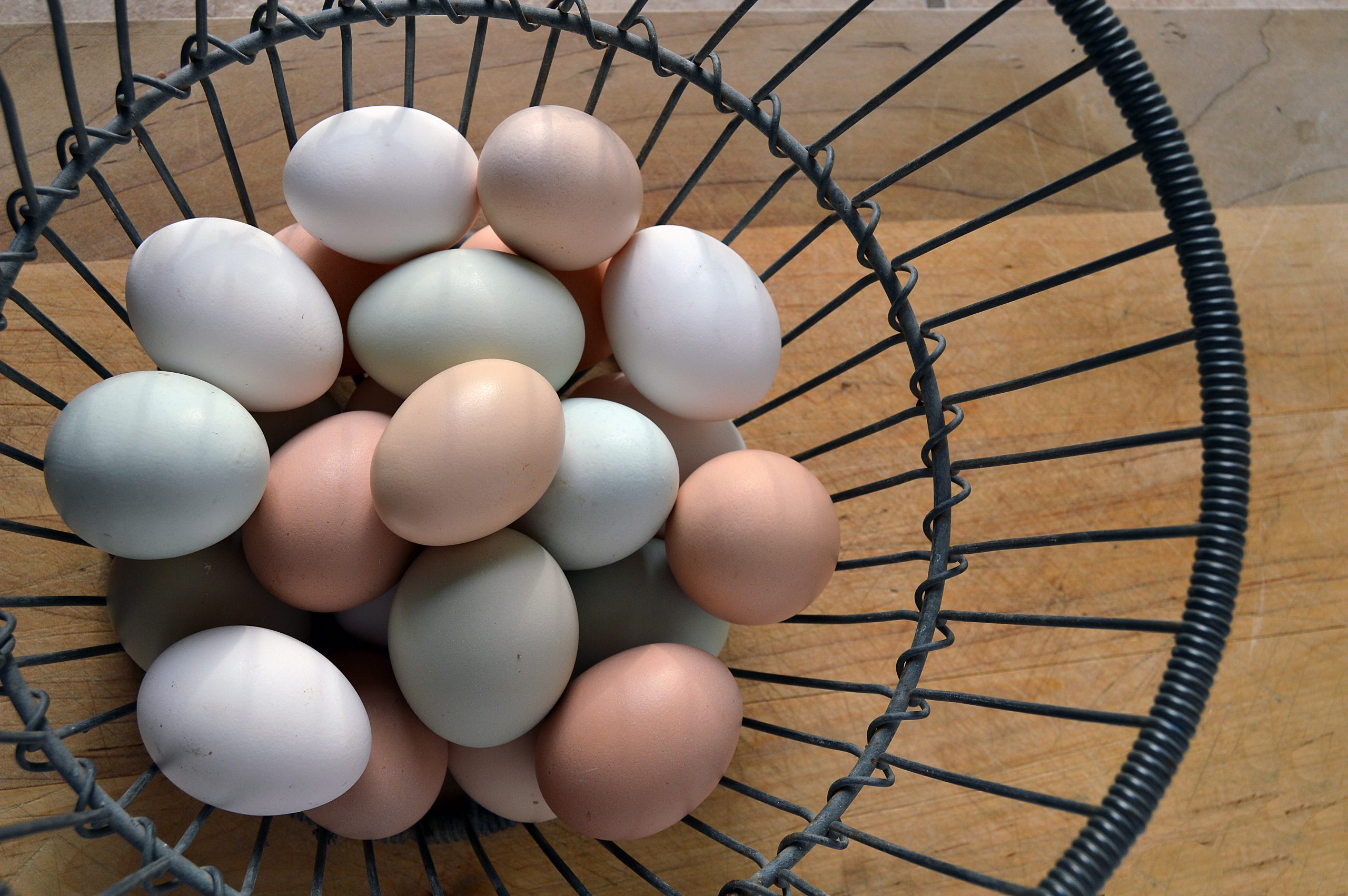Bringing fresh eggs from coop to kitchen is a backyard flock owner’s delight. Trouble is, sometimes there’s too much of a good thing.
Hens lay on their own schedule. Adding light during winter’s short days tricks birds into thinking it’s spring so they lay more eggs during the dark months. But lighting a coop isn’t a perfect solution.
All hens seem to lay more as daily natural sunlight expands and days warm. Families who don’t use artificial winter light see egg production strongly rev up come spring. Those that do use lights often see a smaller increase. Fancy breeds, not known for torrid egg production, and older hens sometimes only lay in the spring. Add up all the factors and most chicken keepers end up with the most eggs during spring’s delightful warmth.
Egg production sometimes doesn’t mesh with kitchen egg needs. Fall’s dwindling days and dropping temperatures discourage hens from laying just as the cool weather baking season arrives, and many eggs are needed to create holiday cookies and cakes.
Too many spring eggs. Not enough late fall ones. Here’s how to solve the dilemma.

Dealing with Surplus Eggs
Many families only have four or six hens in a backyard coop. Rhode Island Reds, Australorps, and other dual-purpose breeds lay four or five eggs a week per hen. That’s often about the right number for a family, but sometimes full cartons stack up in the refrigerator.
Families love fresh eggs, but when they come on faster than they can be eaten cartons full of them stuff the refrigerator. It’s easy to keep using the freshest ones in the top carton while ignoring those beneath. There’s a solution. When a carton is filled mark it with the date and use the older ones first.
What to Do With Extra Eggs
- Freeze them: Raw eggs freeze well. So, a May surplus can be popped in the freezer and used months later for holiday cooking. “Often people don’t realize that eggs freeze well,” said Lesa Vold, Communications Specialist for the Egg Industry Center. Eggsafety.org gives tips on how to safely and easily freeze them.
- Give them away: Eggs make wonderful gifts. Neighbors, coworkers, friends and relatives all love them.
- Sell them: Selling eggs is tricky, at least legally. Many laws and regulations make selling eggs confusing. Every state has its own regulations on top of Federal ones. Before selling eggs it’s wise to learn what’s legal. Some places require a seller’s permit and that eggs be graded, candled, washed, dated and stored in refrigeration. Other areas allow small informal sales of a dozen now and then to friends or neighbors. Interesting information on selling small quantities of eggs can be found on Lisa Steele’s Website at fresheggsdaily.com. Far more legalistic but comprehensive information on state-by-state egg selling regulations can be found at www.nerous.org. NERO stands for the National Egg Regulating Officials.
Whether eggs from the backyard coop are eaten, given away or sold, safety is critical. If spoiled or contaminated eggs can make people or pets sick. Almost everyone who keeps chickens has found hidden eggs of unknown vintage or heavily soiled or cracked ones in the nest. Eating or feeding them to pets could be hazardous. It’s safest to simply compost any questionable egg.
An outstanding egg information source is www.eggsafety.org. Although the website is geared for connecting commercial egg producers with people who buy eggs at the supermarket, the site includes information on buying, selling, storing, cooking, and eating eggs and much more. Its information is helpful to owners of backyard flocks.
One of the most attractive of all foods is an egg carton filled with clean fresh eggs of various shell hues, sizes, and shapes. Some may even have speckles. They are a delight to the eye and palette.